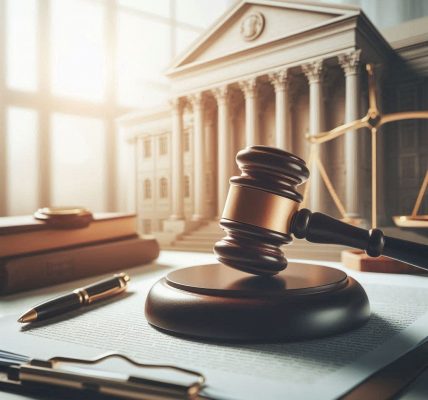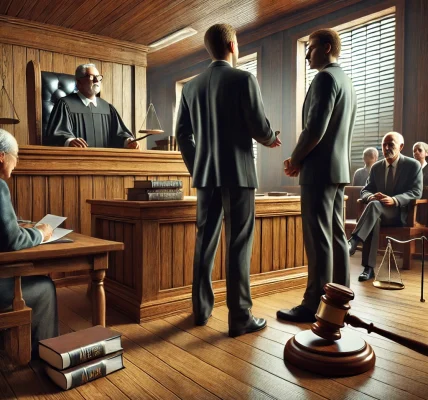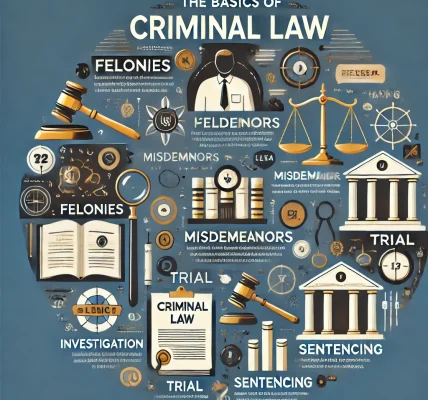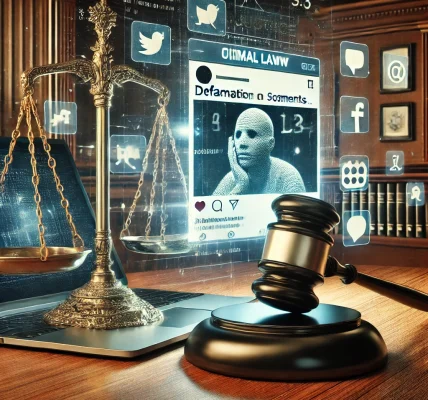Crime is a serious matter that affects individuals, communities, and society as a whole. Criminal offenses vary in severity, and the legal consequences associated with each type of crime can have a long-lasting impact. Understanding different types of crimes and their legal implications can help individuals stay informed about the law and protect themselves from potential legal trouble.
1. Classification of Criminal Offenses
Criminal offenses are generally categorized based on their severity. The three primary classifications are:
A. Infractions (Petty Offenses)
- Definition: Minor violations that typically do not result in jail time.
- Examples: Traffic violations, public intoxication, littering.
- Legal Consequences: Fines or warnings; usually do not result in a criminal record.
B. Misdemeanors
- Definition: Less serious crimes than felonies but more severe than infractions.
- Examples: Shoplifting, simple assault, driving under the influence (DUI).
- Legal Consequences: Fines, probation, community service, or up to one year in jail.
C. Felonies
- Definition: The most serious crimes with severe penalties.
- Examples: Murder, rape, drug trafficking, burglary.
- Legal Consequences: Long-term imprisonment, heavy fines, loss of civil rights, and in some cases, the death penalty.
2. Common Types of Criminal Offenses and Their Legal Consequences
A. Crimes Against Persons
These offenses involve direct harm to individuals and are often treated with the most severity under the law.
1. Homicide (Murder and Manslaughter)
- Definition: Unlawful killing of another person.
- Legal Consequences: Life imprisonment or the death penalty for murder; manslaughter carries shorter prison sentences but is still a serious offense.
2. Assault and Battery
- Definition: Assault refers to the threat of harm, while battery involves actual physical contact.
- Legal Consequences: Misdemeanor or felony charges, depending on severity; penalties include jail time and fines.
3. Kidnapping
- Definition: Unlawfully detaining or transporting a person against their will.
- Legal Consequences: Felony charges with severe penalties, including long prison sentences.
B. Property Crimes
These offenses involve theft or destruction of property.
1. Burglary and Theft
- Definition: Burglary is unlawful entry with intent to commit a crime; theft is unlawfully taking another person’s property.
- Legal Consequences: Misdemeanor or felony charges; penalties include fines, probation, or prison time.
2. Arson
- Definition: Intentionally setting fire to property.
- Legal Consequences: Felony charges, with penalties depending on damage and intent.
C. Financial and White-Collar Crimes
These crimes are non-violent but involve deception for financial gain.
1. Fraud and Embezzlement
- Definition: Fraud involves deception for financial gain; embezzlement is misappropriation of funds entrusted to someone.
- Legal Consequences: Felony or misdemeanor charges, with penalties including restitution, fines, and prison time.
2. Identity Theft
- Definition: Using someone else’s personal information for fraudulent purposes.
- Legal Consequences: Can result in felony charges with severe financial penalties and imprisonment.
D. Drug-Related Crimes
Crimes related to the possession, sale, or manufacture of controlled substances.
1. Drug Possession
- Definition: Unlawful possession of illegal drugs or controlled substances.
- Legal Consequences: Misdemeanor or felony charges, with penalties ranging from fines to long-term imprisonment.
2. Drug Trafficking and Distribution
- Definition: The sale, transportation, or distribution of illegal substances.
- Legal Consequences: Felony charges, with severe penalties including significant prison time.
E. Cyber Crimes
These involve illegal activities conducted using technology or the internet.
1. Hacking and Cyber Fraud
- Definition: Unauthorized access to computer systems or using technology to commit fraud.
- Legal Consequences: Felony charges, fines, and long-term imprisonment.
2. Online Harassment and Stalking
- Definition: Using digital communication to intimidate or threaten someone.
- Legal Consequences: Misdemeanor or felony, depending on severity; penalties include jail time and restraining orders.
3. Aggravating and Mitigating Factors in Criminal Cases
The severity of legal consequences depends on:
- Aggravating Factors: Use of weapons, prior criminal history, and the extent of harm caused.
- Mitigating Factors: First-time offense, cooperation with law enforcement, rehabilitation efforts.
4. Legal Defenses and Expungement
Certain legal defenses can help reduce or dismiss charges, such as:
- Self-Defense: Justification in cases of assault or homicide.
- Insanity: Lack of mental capacity at the time of the crime.
- Lack of Intent: Accidental or unintentional actions.
Expungement allows individuals to remove certain convictions from their records under specific conditions.
Conclusion
Understanding different types of criminal offenses and their legal consequences is crucial for staying informed and protecting one’s rights. If accused of a crime, seeking legal representation immediately is essential to ensuring a fair trial and navigating the justice system effectively.
By knowing the law, individuals can make better choices and avoid serious legal repercussions.




